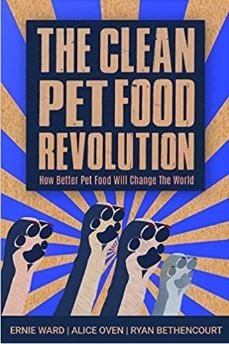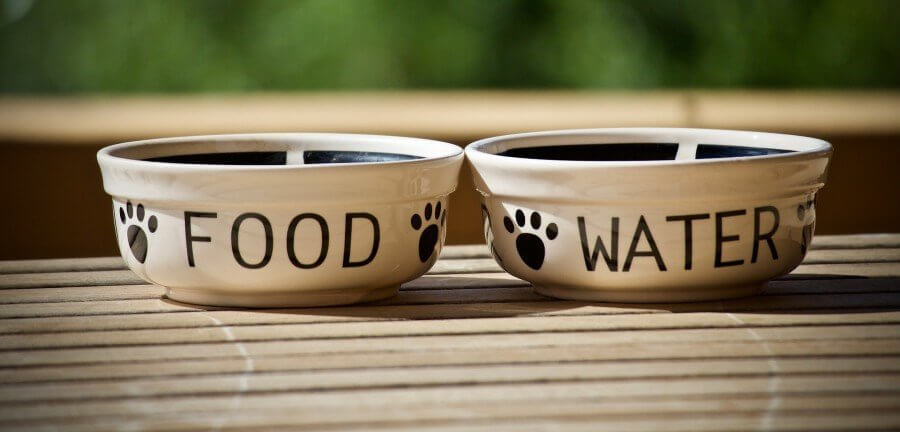My Arthur is a finicky dog, and I’m constantly looking for the “right” food that he’ll enjoy. But even as a longtime animal activist, I never gave much thought to the food that I buy for him, other than trying to ensure that it’s a superior product. The Clean Pet Food Revolution: How Better Pet Food Will Change the World by Ernie Ward, Alice Oven, and Ryan Bethencourt upended my thinking.
Conscientious animal guardians want the highest-quality food that they can buy for their dogs and cats and will often pay a premium price for it. But most really don’t know or even think about its origins on factory farms or its considerable environmental impact.

Even informed shoppers will be shocked to learn that because of the increasing demand for high-quality meat for animal companions, about 30% of intensively farmed animals in the U.S. are slaughtered solely to feed our dogs and cats. A quarter of all the meat consumed in the nation is eaten by dogs and cats—an amount equivalent to that devoured by 26 million Americans. U.S. cats and dogs are equal to the fifth largest country in terms of animal protein consumption. These are staggering statistics!
The initial chapters of the book cover what actually goes into pet food—including “premium” brands—and how the industry is having a devastating impact on farmed animals and the environment (including by exacerbating climate change). The book promotes vegetarian and vegan pet food and documents the little-known suffering of dogs and cats in laboratories to test pet food “safety.” The authors debunk the myth that dogs and cats need meat to survive and demonstrate that they can be perfectly healthy as long as they consume the necessary nutrients.
The chapter titled “More Legs, Less Guilt? Insect-Protect Pet Food” was utterly fascinating. Who knew that insect farming is already a thriving global industry? The authors note that the animal-feed industry is exploring this alternative protein source, not because its leaders care about animal suffering but because insect protein is likely cheaper to produce. Dried crickets are the most popular insect used to feed dogs and cats, with a protein content that exceeds that of beef, chicken, or pork. Insect proteins are almost indistinguishable from other animal proteins.
The authors raise the issue of whether insects suffer. After considering the mixed scientific evidence about the pain perception of invertebrates, the authors note that increasingly large-scale insect farming could result in the suffering of trillions of individuals instead of billions. It’s a sobering thought.
“Pain is not eliminated or reduced simply because an animal is covered in fur, hooved, or has gills. … [I]t must be our obligation and duty to avoid causing pain and suffering to other humans and animals. And that may include insects.”
The authors reached out to multiple clean-food startups—companies making food from novel proteins such as cultured fungi as well as yeast-based dog food and cell-based cat food. The dedication of these companies to do better is genuinely impressive. They’re using science to fix a broken food system, and animal health and longevity are the top priorities. The company PawCo Foods, for example, has board certified nutritionists and food scientists on their team. The brand contends that dogs can thrive on a vegan diet, so long as they get the nutrition that they need
Concerns about cost are addressed, and the authors argue that clean pet food will introduce less expensive choices than traditional meat-based choices. Specifically, with yeast and cellular proteins, it’s possible to enhance pet food nutrition at a lower cost and to create ethically sourced foods specific to an individual animal’s nutritional needs.
The book makes the overwhelmingly convincing argument that feeding meat to our dogs and cats is cruel and unsustainable, and it makes it clear that the pet food revolution is occurring right now. Clean pet food will be a win for the planet and all the animals on it.
This book is a thought-provoking read for every animal guardian. Get your copy, and let us know what you think.





